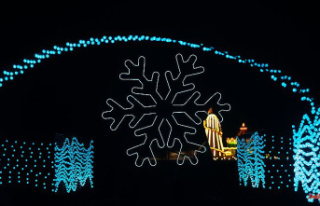They are small and wrinkled, but their effect is promising: While magic mushrooms are banned in many places, Jamaica wants to use the "magic mushrooms" to boost tourism in the country. Several resorts advertise mystical experiences and the fungus also seems to go down well with therapies.
Sun, reggae and a hint of sweet cannabis scents - that's what Jamaica is known for all over the world. Now the Caribbean island is trying to build a niche industry with natural psychedelics and advertises mystical experiences and stress relief through magic mushrooms. Almost half of his guests describe a "mystical experience" and notice a reduction in stress, says Justin Townsend of Myco Meditations, a resort with its own mushroom production.
There are now at least four resorts in Jamaica that specialize in "magic mushrooms" and their psychoactive ingredient, psilocybin. Three such facilities have opened in recent years as the government eyed psychedelics and encouraged private investment in the sector.
While magic mushrooms remain illegal in most of Europe and the US, the Jamaican government has never banned them. The state agency Jamaica Promotions Corporation sees this as an opportunity to expand the country's tourism industry. According to market researcher Insight Ace Analytic, the global psychedelics industry could be worth over $8 billion by 2028 — more than double what it was in 2021.
For example, guests at the psychedelic retreat Myco Meditations on Jamaica's south coast pay up to $23,500 for a week's stay with three treatments. "I felt love for the first time in my life," says Dean, 41, from South Carolina, who attended a program. "What I learned this week would have taken ten years of talk therapy," he added, describing a "euphoric, blissful, hopeful" experience where the colors came alive and his body seemed to release deep feelings.
The use of psilocybin to treat mental health issues such as anxiety or depression is still being studied in clinical trials. According to US and Canadian health authorities, side effects such as panic, anxiety, and nausea, as well as later "flashback" reactions, can occur.
During the meditation sessions, visitors lie on lounge chairs or yoga mats and listen to music. Groups of up to twelve people, mostly American, later describe their experiences in a group with therapists and counselors. Myco Meditations decides on the dosage after consultation with the team, which also includes US-licensed collaborators.
Decisions are made based on criteria such as the customer's mental health. The employees are trained to recognize the signs of a bad trip and to initiate therapeutic measures, explains company boss Townsend. "It's just amazing when you see people who have been scared for 20, 30 years and it's just gone."
Psilocybin allows different thoughts and emotions to flow, says Matthew Johnson, a professor of psychiatry at Johns Hopkins University School of Medicine. This can help people out of negative mental bottlenecks associated with problems like depression and addiction.
The Jamaican government's openness to psychedelic substances is at odds with the country's conservative attitude, where traditional Christian values prevail over the liberal Rastafari ideas often associated with the island. Nonetheless, in 2021 officials and business leaders gathered in Montego Bay for the Psychedelics Summit to network and explore opportunities in the psychedelic industry. The conference was attended by then Secretary of Agriculture Floyd Green and several entrepreneurs including Cedella Marley, daughter of reggae singer Bob Marley.
Outside of Jamaica, there are also psychedelic programs in the Netherlands, Spain and Costa Rica. Companies are testing psilocybin as a treatment for depression, anorexia and obsessive-compulsive disorder. Psychiatrist and Jamaica's former Chief Medical Officer Winston De La Haye warns that psilocybin is not suitable for everyone and should be avoided by people with bipolar disorder or schizophrenia. However, the current chairman of the Caribbean Psychedelics Association has developed his own psilocybin treatment system for his patients and believes the compound can help those suffering from major depression as well as those who need care at the end of their lives.












